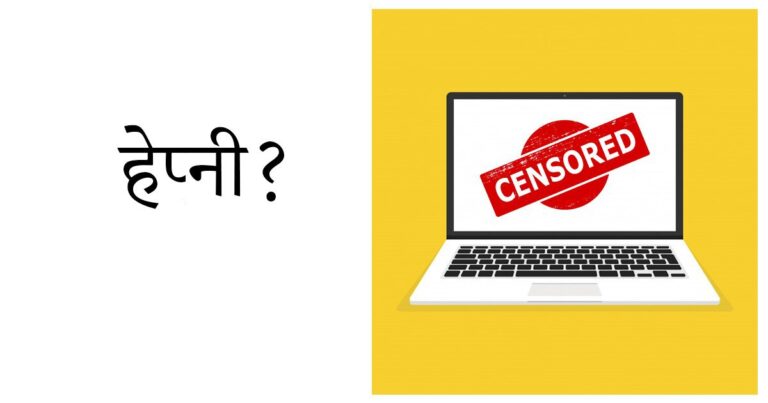
The Information Technology Bill, which carries a five-year jail term and a fine of Rs 1.5 million for those who criticize government and ministers online, is scheduled to be tabled at the House of Representatives today.
The report of the Bill passed by the Development and Technology Committee, without the votes of Nepali Congress lawmakers, will be submitted to the House of Representatives today for deliberation and passage.
The government was sharply criticized for including a provision in the Bill that restricts the right to freedom of expression. The Bill also provisions five years jail term and a fine of up to Rs 1.5 million for writing against the government and ministers on online and social media platforms, including Facebook, Twitter, Instagram, and TikTok.
After the Bill was earlier tabled in the parliament but could not be passed, the KP Sharma Oli-led government had even tried to introduce a separate ordinance by keeping the same provisions of the Bill.
The government, however, was forced to back down after widespread protests.
According to Nepali Congress lawmakers, the Development and Technology Committee has moved ahead with the Bill as per the government’s wishes.
As per the report passed by the Committee, if the Bill is passed and made into law, individuals and journalists could be jailed on the basis of writing news online, sharing the same news on social media platforms, and sharing contentious political views.
The Bill presented by the Oli-led government got approval from the Development and Technology Committee, with majority votes from UML and CPN-MC lawmakers, in December, 2019 despite protests by Nepali Congress lawmakers.
Nepali Congress MP Sanjay Gautam said that the provisions of the Bill were against the spirit of the constitution and violated the freedom as well as fundamental rights of citizens.
The report of the Bill, passed by the Committee, has provision of imprisonment for up to five years and a fine of up to Rs 1.5 million if any person is found to be constantly teasing, deceiving, humiliating, discouraging, reprimanding, inciting hatred, character assassinating, or insulting individuals, ministers as well as the government on social media.
Lawyer Baburam Aryal said that the Bill will restrict people’s freedom of expression as it will give the government employees the prerogative to directly remove social media content without a court order.
The wide-scope nature and the vague language used in the provisions could give broad powers to authorities to block social media platforms if they are not registered in Nepal, threatening to curtail freedom of speech online as well as increase surveillance of personal data and also have more red tape for internet-based companies.
According to Amnesty International, several provisions in the IT Bill do not meet international human rights law and standards. For example, section 94 of the bill vaguely criminalizes people who post content on social media if it is deemed to be against “national unity, self-respect, national interest, relationship between federal units”.
Other provisions of the Bill, which are open to wide interpretation, could also be abused to stifle critical opinions, satire, public dialogue, and public commentary. For example, the bill prohibits “teasing”, “deceiving”, “demotivating”, and “demeaning”.
Section 88 of the Bill also restricts the publishing of such content through use of any electronic medium, which could include news sites, blogs and even emails.
Section 115 of the Bill envisions an “Information Technology Court” in each of the seven provinces around the country, with the mandate to deal with all issues under the bill, including criminal liability.
As the Bill authorizes the government to appoint the members of the court bypassing judicial council, this poses serious concerns on the influence of the executive over these courts, the independence of the judiciary and fair trails guarantee in such courts.
Under international human rights law, states are permitted to limit the right to freedom of expression, but these limitations must be set forth in law in a precise manner, and be necessary and proportionate to a legitimate aim, as stipulated in the International Covenant on Civil and Political Rights to which Nepal is a party.
The government has already been using the Electronic Transaction Act 2006 to arrest and take action against people based on their social media posts deemed “improper” by the authorities.
It has also been used to arbitrarily detain journalists for publishing stories which criticized the government or others who posted critical comments online.
In April, 2019 journalist Arjun Giri was charged under the Act for reporting on financial fraud.
In June, 2019 comedian Pranesh Gautam was arrested for posting a satirical film review on YouTube.
In October, 2019 singers DurgeshThapa and Samir Ghishing, aka VTEN were arrested for the content of their songs.






